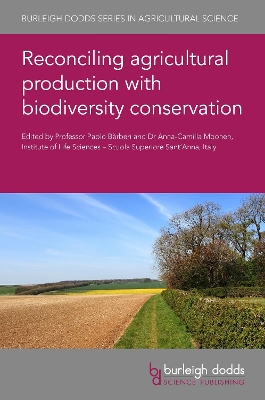Burleigh Dodds Series in Agricultural Science
1 primary work
Book 87
Reconciling Agricultural Production with Biodiversity Conservation
Published 22 September 2020
"This book provides an excellent synthesis of conservation practices...The book has insightfully blended constructive concepts supported by well-recognised models and case studies on how to manage agricultural production and biodiversity...I strongly recommend this brilliant book to students, scientists, managers, policymakers and politicians engaging in biodiversity conservation in the agricultural landscape globally."
Journal of Nature Conservation
More intensive, monocultural agriculture has been associated with a decline in diversity of habitat and plant species which leads to corresponding declines in diversity of insect, bird and mammal species. There is mounting evidence that a more biodiverse landscape improves ecosystem services which benefits farmers.
Reconciling agricultural production with biodiversity conservation provides an authoritative review of current biodiversity conservation practices, including field margins, agroforestry systems, hedgerows and improved pasture and grassland management. The collection additionally summarises the theoretical framework that underpins biodiversity conservation in agriculture, dedicating chapters to key developments in areas such as landscape approaches, mapping and modelling diversity, as well as ways of assessing the economic value of biodiversity conservation practices.
Journal of Nature Conservation
More intensive, monocultural agriculture has been associated with a decline in diversity of habitat and plant species which leads to corresponding declines in diversity of insect, bird and mammal species. There is mounting evidence that a more biodiverse landscape improves ecosystem services which benefits farmers.
Reconciling agricultural production with biodiversity conservation provides an authoritative review of current biodiversity conservation practices, including field margins, agroforestry systems, hedgerows and improved pasture and grassland management. The collection additionally summarises the theoretical framework that underpins biodiversity conservation in agriculture, dedicating chapters to key developments in areas such as landscape approaches, mapping and modelling diversity, as well as ways of assessing the economic value of biodiversity conservation practices.
